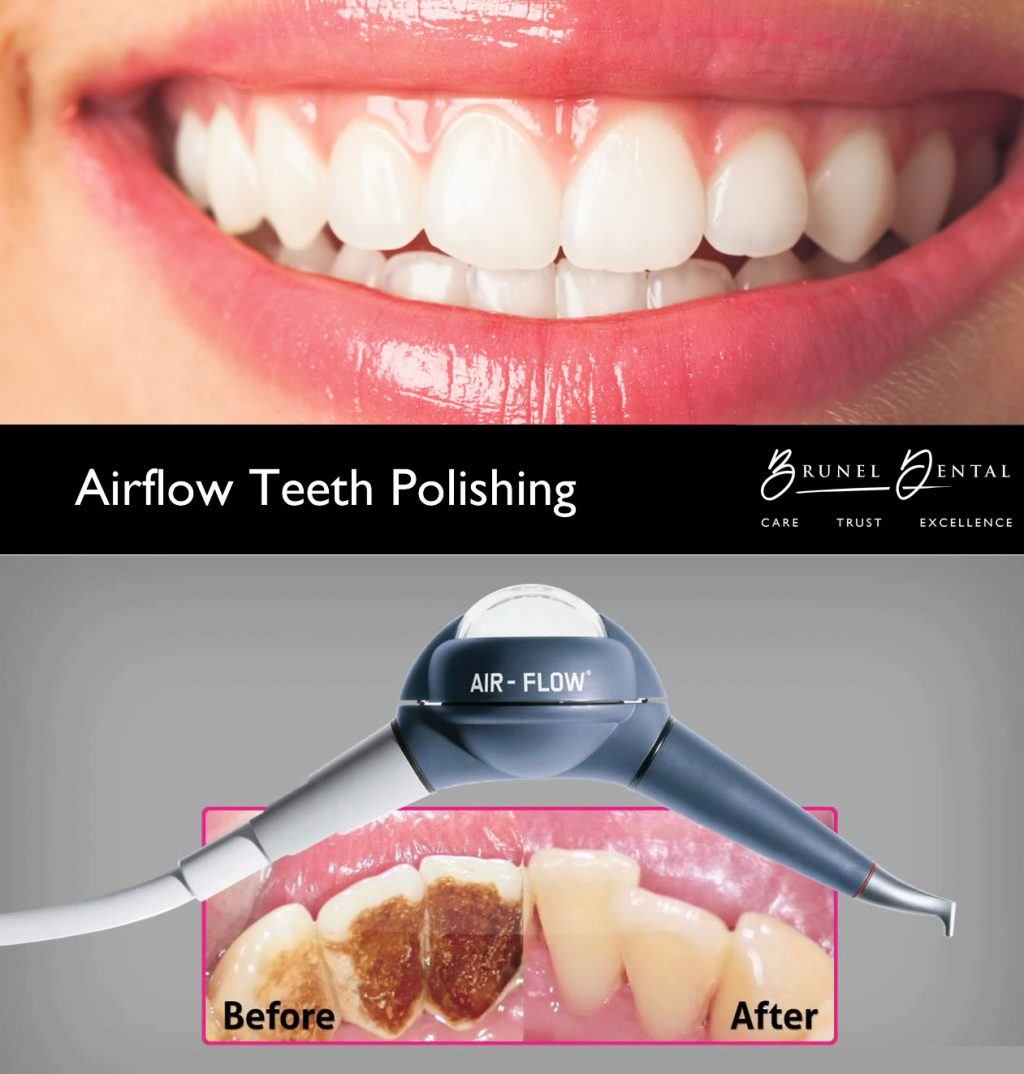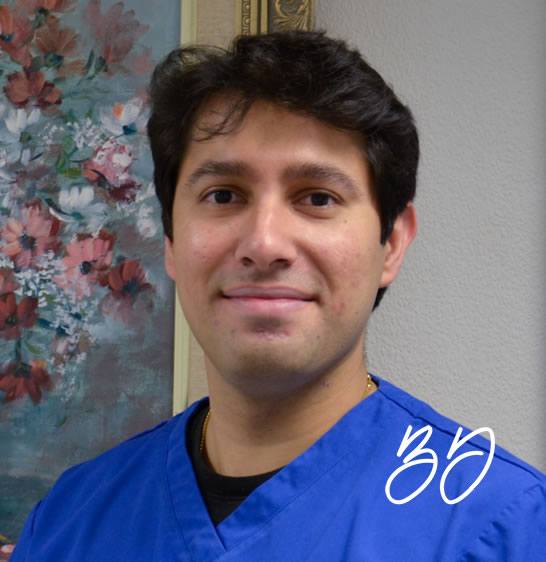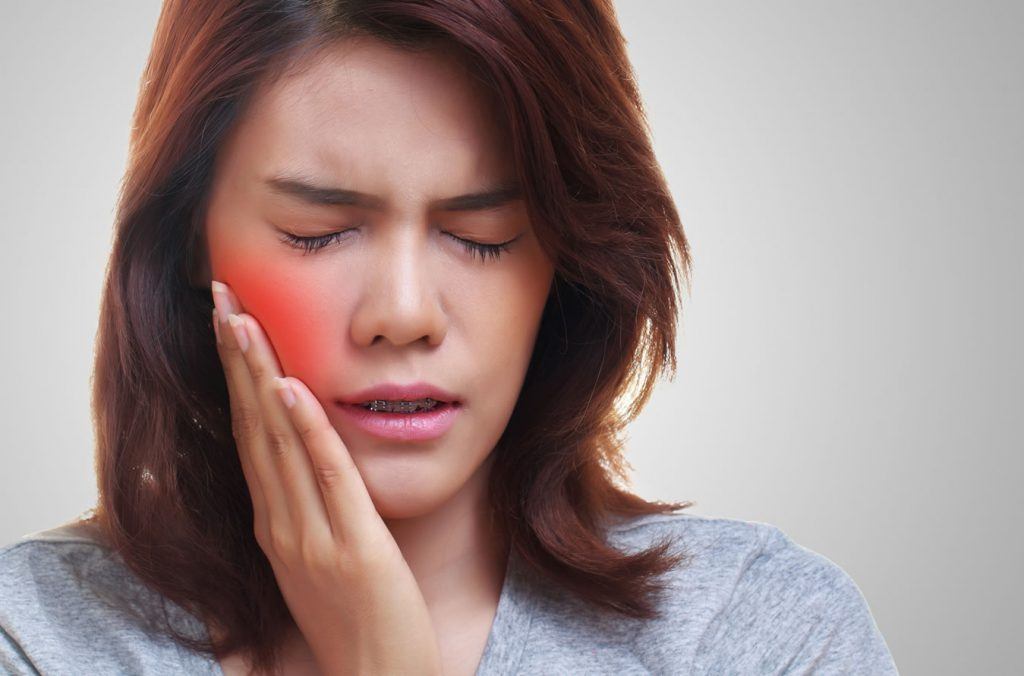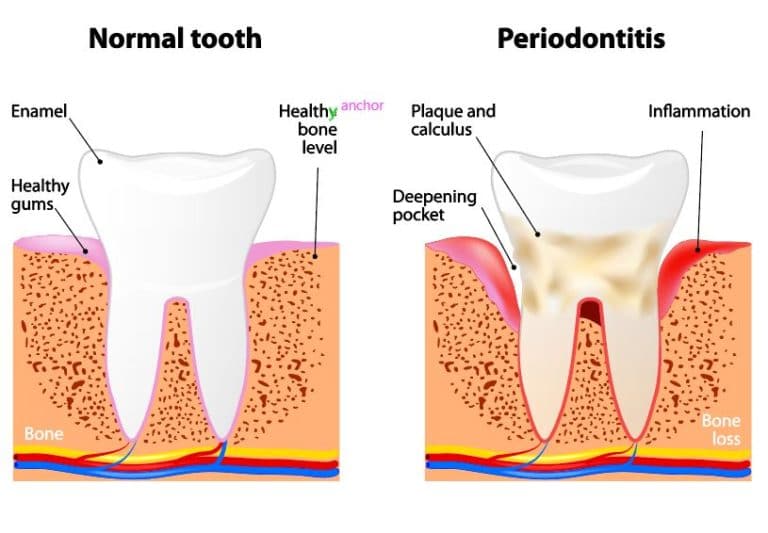Dental Hygienist
Our dental hygienist, Douglas Mackenzie, is specially trained in the prevention and treatment of gum (periodontal) disease, which is the main cause of adult tooth loss.
Our dental hygiene appointments include:
- Dental hygiene examination to look for any inflammation, bleeding and plaque or calculus build up
- Scaling & polishing to remove all plaque and calculus. We offer Airflow air polishing which fires a jet of air, water and sodium bicarbonate at your teeth to remove debris and polish the surface.
- Daily dental hygiene advice and routine to ensure you can maintain those areas visibly accessible on a day to day basis in between dental hygiene appointments and ensure long term problems caused by poor dental hygiene remain at bay.

bOOK A HYGIENIST APPOINTMENT
Hygienists form an important role in keeping your teeth and gums healthy. At Brunel Dental, in Swindon, we can offer a range of treatments from routine check-ups to more complex treatments for gum disease.

Airflow Teeth Polishing
Airflow cleaning is a simple way to effectively remove surface stains from teeth. The system uses a focused jet of compressed air, water and bicarbonate particles to gently polish away surface staining from the teeth. Airflow cleaning is a great way to simply and effectively brighten your smile.
It will remove surface staining but unlike tooth whitening, will not lighten the base colour of the teeth The treatment lasts around 30 minutes, during which time the teeth will be cleaned with the air/water/bicarbonate jet.

“I can only say how pleased I am with the end result. My teeth were, as you know, a complete mess before the treatment but you managed the whole thing with ultimate success. And, of course, I cannot pass without a word of praise for the girls who were always cheerful, understanding and so kind.”
Mr D, Farringdon
Sensitive Teeth
Having sensitive teeth can mean anything from getting a mild twinge to having severe discomfort that can continue for several hours.
It can also be an early warning sign of more serious dental problems.
Many people suffer from sensitive teeth and it can start at any time. It is more common in people aged between 20 and 40, although it can affect people in their early teens and when they are over 70. Women are more likely to be affected than men.
There are many brands of toothpaste on the market made to help ease the pain of sensitive teeth. The toothpaste should be used twice a day to brush your teeth. It can also be rubbed onto the sensitive areas.
These toothpastes can take anything from a few days to several weeks to take effect. Your dentist should be able to advise you on which type of toothpaste would be best for you.

Dental Prevention advice

Oral hygiene advice
Our Dental hygienists have the time to answer any questions you have on oral health.
- Demonstrate effective tooth brushing technique to remove plaque without causing tooth wear and receding gums.
- Discuss the latest oral hygiene products.
- Advice on the best aid to clean in between teeth.
Why is brushing important?
Daily brushing and cleaning between your teeth is important because it removes plaque. If the plaque isn’t removed, it continues to build up, feeding on the food debris left behind and causing tooth decay and gum disease.
How can plaque cause decay?
When you eat food containing sugars and starches, the bacteria in plaque produce acids, which attack tooth enamel. The stickiness of the plaque keeps these acids in contact with teeth. After this happens many times, the tooth enamel can break down forming a hole or cavity.
How can plaque cause gum disease?
Plaque can harden into something called calculus (“tartar”). As calculus forms near the gumline, the plaque underneath releases poisons causing the gums to become irritated and inflamed. The gums begin to pull away from the teeth and the gaps become infected.
If gum disease is not treated promptly, the bone supporting the teeth is destroyed and healthy teeth may be lost. Gum disease is the biggest cause of tooth loss in adults and can lead to dentures, bridges or implants.
How can I prevent gum disease?
It is important to remove plaque and food debris from around your teeth, as this will stop your gums from swelling and becoming infected. If you leave plaque on your teeth it can develop into tartar, which can only be removed by the dentist or hygienist. It is important to keep up your regular appointments so that your teeth can have a thorough cleaning if they need it.
How do I know if I have gum disease?
Gum disease (gingivitis) will show itself as red, swollen gums that bleed when brushed or flossed. Many people are alarmed when they notice this bleeding and will then brush more gently, if at all. It is important that you continue to clean regularly and firmly in order to fight the condition.
Which type of toothbrush should I use?
Your dentist or dental hygienist will be able to recommend a toothbrush to you. However, adults should choose a small to medium size brush with soft to medium multi-tufted, round-ended nylon bristles or ‘filaments’. The head should be small enough to get into all parts of the mouth: especially the back of the mouth where cleaning can be difficult. Children need to use smaller brushes but with the same type of filaments.
You can now get more specialised toothbrushes. For instance, people with
sensitive teeth can now use softer bristled brushes. There are also smaller headed toothbrushes for those people
with crooked or irregular teeth. Some people find it difficult to hold a toothbrush, for example because they have Parkinson’s disease or a physical disability. There are now toothbrushes, which have large handles and angled heads to make them easier to use.
How often should I change my toothbrush?
Worn-out toothbrushes cannot clean your teeth properly and may damage your gums. It is important to change your toothbrush every two to three months or sooner if the filaments become worn. When filaments become splayed, they do not clean properly.
How should I brush?
Brushing removes plaque and food particles from the inner, outer and biting surfaces of your teeth.
Here is one method of removing plaque:
- Place the head of your toothbrush against your teeth and angle against the gumline. Move the brush in small circular movements, several times, on all the surfaces of each individual tooth.
- Brush the outer surfaces of each tooth, upper and lower, keeping the bristles angled against the gumline.
- Use the same method on the inside surfaces of all your teeth.
- Brush the chewing surfaces of the teeth.
- To clean the inside surfaces of the front teeth, tilt the brush vertically and make several small circular strokes with the toe (the front part) of the brush.
- Brushing your tongue will help freshen your breath and will clean your mouth by removing bacteria.
How often should I brush my teeth?
Be sure to brush thoroughly with a fluoride toothpaste at least twice a day, more often if your dentist recommends it. If you keep getting discomfort or bleeding after brushing go to see your dentist about it.

What is Gum Disease?
Periodontal disease (gum disease) affects the gums, bone and other supporting tissues of the teeth. It is caused by plaque, a sticky film of bacteria which regularly collects on the teeth. However, certain individuals are more susceptible to periodontal disease than others due to risk factors, for example, a genetic predisposition, smoking and diabetes. You can prevent gum disease by:
- Inform your dentist of any change in the condition of your gums
- Keeping Your Teeth Healthy
- Brush with a soft brush twice a day.
- Floss daily to clean the areas between the teeth.
- Visit a dental clinic regularly for check-ups and cleaning.
In the early stage of periodontal disease individuals may suffer from red, swollen gums which bleed easily (gingivitis).
However, in susceptible individuals this may develop into the more advanced stages of the disease resulting in bone loss, pocketing, loose teeth and gum recession (periodontitis).
Periodontal disease tends to be painless and, therefore, individuals may be unaware that they have the disease. If periodontal disease is left untreated it may lead to tooth loss. Early detection of periodontal disease is critical for the prevention of disease progression. This is achieved through periodic dental check-ups with your dentist.
The treatment of periodontal disease is aimed at the removal of the disease-causing bacteria to prevent disease progresssion. This is managed by plaque control instruction specific to an individual’s needs followed by professional cleaning of the diseased sites.
In some individuals periodontal surgery may be indicated to provide better access for cleaning of the tooth surfaces or pocket reduction. Treatment is managed by your dentist who may advise referral to the Dental Hygienist for basic treatment or the Periodontist for more advanced treatment.
Gum disease is caused when bacteria in the plaque secrete toxins that cause infection and destruction of the gum tissues that support the teeth. You can prevent gum disease by:
- Keeping Your Teeth Healthy
- Brush with a soft brush twice a day.
- Floss daily to clean the areas between the teeth.
- Visit a dental clinic regularly for check-ups and cleaning.
- Inform your dentist of any change in the condition of your gums

Preventing Tooth Decay
Tooth decay (also known as dental decay and dental caries) results from a bacterial infection of your teeth.
Your mouth is full of millions of tiny bacteria. When you consume food and drink that are high in carbohydrates – typically sugary or starchy foods or drinks – the bacteria breaks the carbohydrates down into acid.
The acid then combines with the bacteria, the saliva in your mouth, and small particles of food to produce a sticky film known as plaque. Over time the plaque begins to break down the surface of your tooth. Left untreated the plaque can completely destroy the outside of the tooth, exposing the nerves inside. Once this happens you will experience the troublesome pain of tooth ache.
Tooth decay is one of the most widespread health problems in the UK. 55% of adults in the UK have one or more decayed or unsound teeth.
Tooth decay is also a problem for children. It is estimated that between 52% and 77% children aged 8 to 15 years have some obvious tooth decay in their permanent teeth.
As well as being one of the most widespread health conditions, tooth decay is also one of the most easily preventable ones. Limiting your consumption of sugar and starchy foods, as well as sugary drinks and brushing your teeth with fluoride toothpaste at least twice a day should prevent tooth decay.
There are a number of techniques that can help repair damaged teeth, such as fillings, and crowns. In more advanced cases of tooth decay, the tooth may need to be removed.
£65 New Patient Consultation
We are accepting new patients so fill out the form below or call 01793 521646

